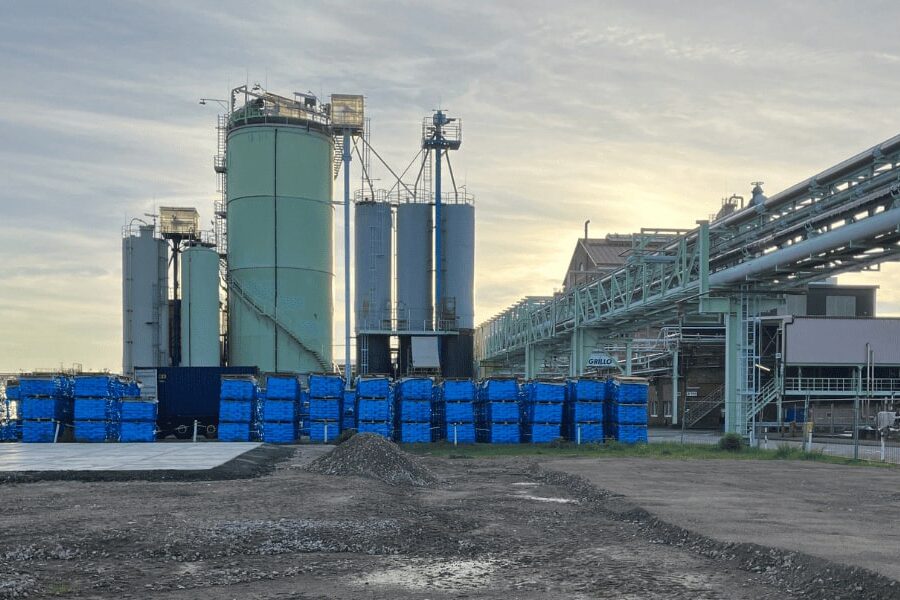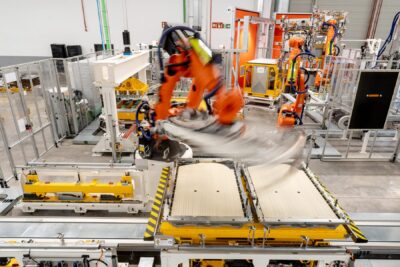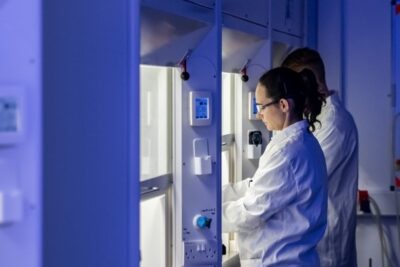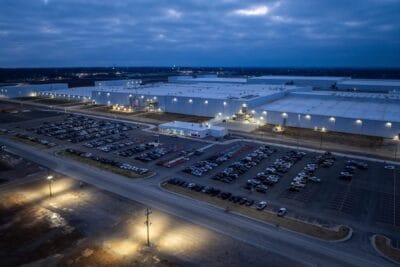Geothermal cooperation: BASF flirts with geothermal energy, Vulcan with lithium plant
Just a few days ago, the German-Australian company Vulcan Energy announced that it had produced lithium hydroxide for the first time in Frankfurt-Höchst using its lithium precursor from geothermal brine. Lithium made in Germany, so to speak. Now comes another major announcement: Vulcan and chemical giant BASF are initiating a strategic partnership to discuss the use of geothermal energy at BASF’s headquarters.
Together, the partners want to evaluate the utilisation of geothermal energy from deep geothermal energy, which could supply BASF’s main plant with base load-capable, renewable energy in the future. According to the two companies, the neighbouring towns of Frankenthal and Ludwigshafen should also benefit from the sustainable heat and are participating in the necessary seismic exploration in the Upper Rhine Graben as a first step. In order to utilise synergy effects in the course of the project, Vulcan is also considering the construction of a lithium extraction plant for the production of green lithium on the BASF site.
“Assuming that the exploratory work is successful, heat pumps could be used to take advantage of the area’s geothermal energy to generate CO2-free steam,” BASF explains in a press release. With a potential output of 300 megawatts of thermal energy, around 4 million tonnes of this important energy source for the chemical industry could be produced annually at the Ludwigshafen site – without the use of fossil fuels. “This would prevent the emission of approximately 800,000 metric tons of CO₂, making a significant contribution to reducing greenhouse gas emissions at BASF’s main site,” it says.
Vulcan is also planning to produce sustainable lithium for the German and European battery and automotive industry as part of the project. The thermal water in the Upper Rhine Graben has a high concentration of the light metal. While BASF would use the hot thermal water to generate steam, Vulcan could then use it to extract lithium. The partners are currently examining the possibility of building a lithium extraction plant on the BASF site at a later date.
Vulcan’s approach is primarily aimed at creating a local source of sustainable lithium in Europe. Vulcan’s combined geothermal and lithium resource is the largest in Europe, with licence areas concentrated in the Upper Rhine Valley in Germany. In February 2023, Vulcan announced the results of a definitive feasibility study for the first phase of its lithium project, according to which Vulcan initially intends to produce 24,000 tonnes of lithium hydroxide monohydrate (LHM) per year. This is produced from lithium chloride in a multi-stage process.
Vulcan has set up two test plants in Germany to refine the processes for the subsequent commercial plants. In April, the first lithium chloride was filtered out of the geothermal brine in the so-called LEOP (‘Lithium Extraction Optimisation Plant’) in Landau. In November, this preliminary product was further processed into battery-grade lithium hydroxide at the Central Lithium Electrolysis Optimisation Plant (CLEOP) at Industriepark Höchst. Both plants will later serve as a model for analogue facilities on a larger scale – potentially, as mentioned above, on the BASF site.
“With this project, Vulcan aims to make a significant contribution to reducing CO₂ emissions from the region’s industrial sector. Supplying energy from renewable heat sources to the companies located in the Upper Rhine Valley is a cornerstone of our project development strategy,” says Thorsten Weimann, Managing Director of Vulcan Energie Ressourcen GmbH. The aim is to implement project models such as the one with BASF, in which the development of geothermal energy can be combined with climate-neutral lithium extraction, throughout the Upper Rhine Graben. “The associated reliable supply of heating for the region’s population would also deliver an important locational advantage.”
Uwe Liebelt, President European Verbund Sites at BASF SE, commented. “In Vulcan, we have a partner on board who has the necessary technological expertise in exploiting geothermal heat to plan and implement such a complex project. Deep geothermal energy not only offers enormous potential for our own energy transformation. If the project is successful, we will set an excellent example for how we can shape the energy transition in the Rhine-Neckar Metropolitan Region through close cooperation between politicians, energy suppliers, and the industrial sector and leverage benefits for all parties.”
The next step is to carry out seismic measurements to analyse the geothermal conditions in a sub-region of the Upper Rhine Graben. Vulcan will act as the active project developer, responsible for the exploration and playing a key technical role. The first explorations are currently scheduled to begin in early 2025.





0 Comments